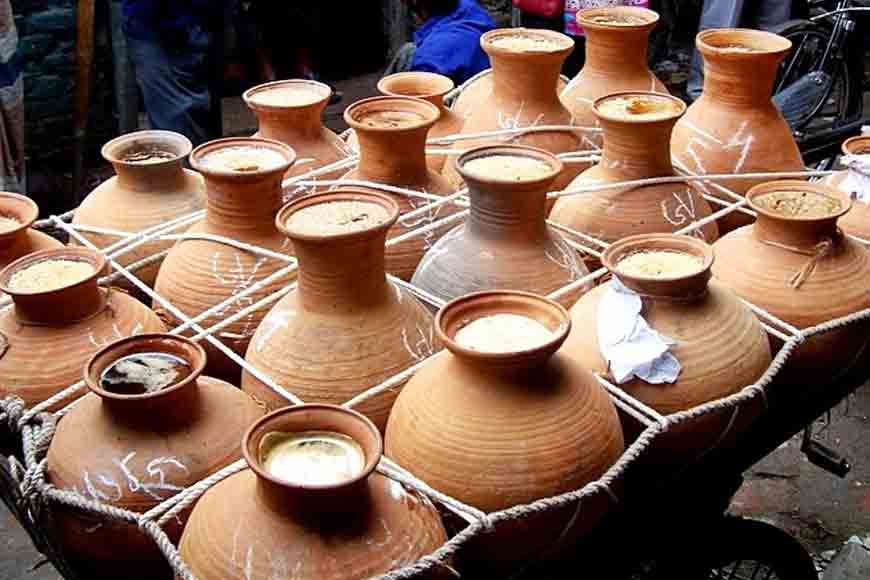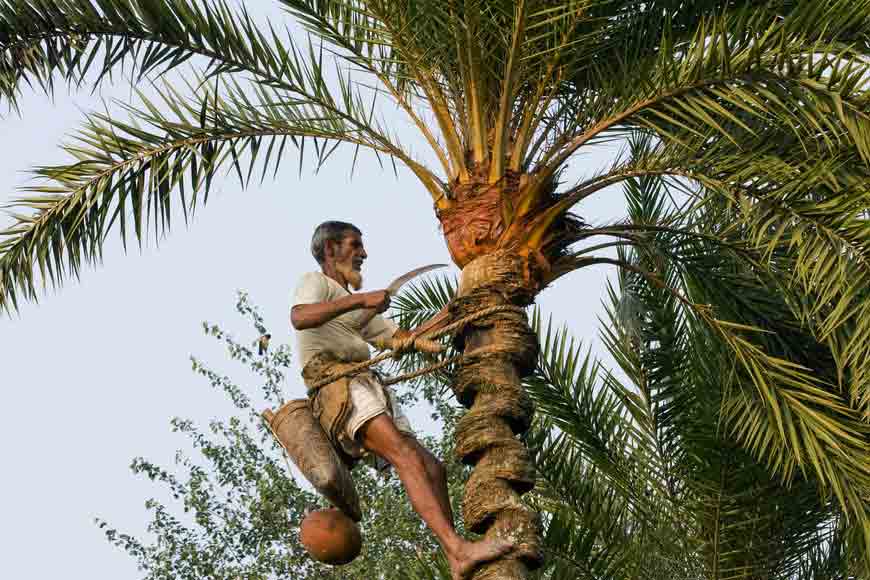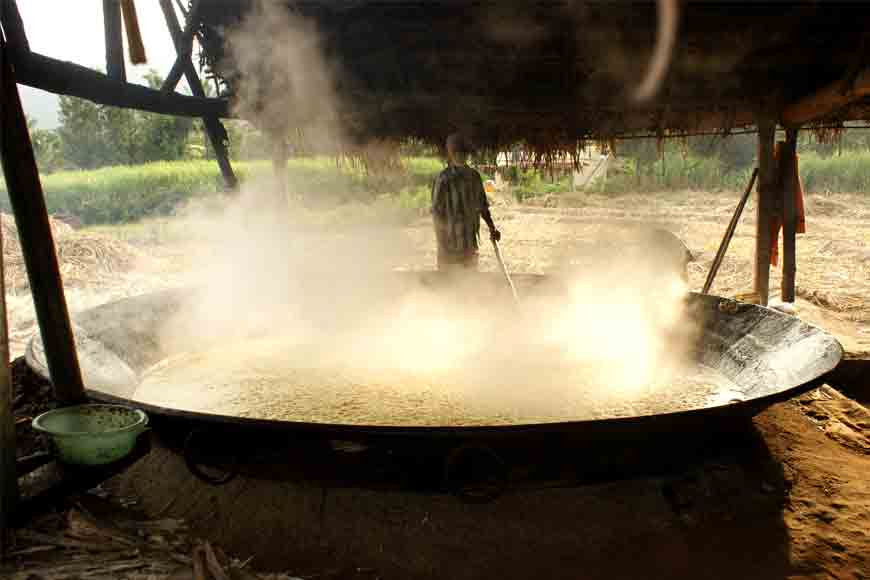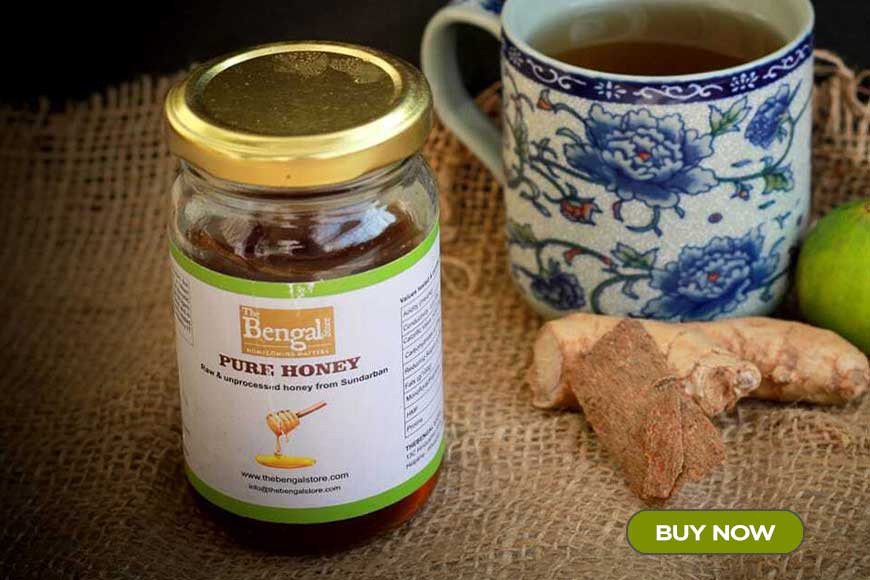From Palms to Pots

Pratik Mondal of Aambera village of Bankura is an entrepreneur in his own rights, and so is 30-year-old Radhanath Mandy, who huddle into a fervour every winter from being a sap tapper to running behind locals, boiling huge pots and pans of jaggery, popularly known as Nolen Gur in their village courtyards. Over 300 villagers of Sarkarkanali, Tantihir, Khairgenjak, Ramkrishnapur and Musunia of Bankura are not only working as sap tappers but have set up their own processing units for making jaggery and other items out of the sap. Their products are going far and wide, from different parts of India to even abroad through different NGOs and traders.

Even if there is the problem of middlemen who sell their products in the big cities at a much higher price, still these micro entrepreneurs of Bankura are earning to their heart’s content. The palm sap has indeed helped them find an exciting livelihood and their products make way to every home of Bengal during winter. Most of the sap tappers of Bankura and Purulia are tribals and in the sap tapping season they earn anything between Rs 500-700 daily. As Radhanath says: “Sap collection is profitable in winter and if you have the speed and dexterity, the income is quite high. But yes, added to it is labour, and only young men can earn a lot as they are very fast in climbing up the trees. They can earn a hefty amount during this season.”
Local NGOs are training villagers to diversify into different products from solid jaggery. They help to sell the products in different parts of Bengal and India as a unique form of Bengal sweet and even the leaves, stem etc go to make fans and fashionable mats. Thus, a plethora of cottage industries have come up in recent years, that contribute to the rural income. Even the West Bengal Government is promoting the palm and offer livelihood to people. “The palm has a huge potential wherever it grows across the state.
Usually the palm trees are located on a community land in the villages and the owners strike a deal with the sap collectors to give them a portion of the yield in exchange for allowing them to use the trees. Take for example, Aambera village, 2 kg of jaggery is given per tree to the tappers. Best part is the trees will never be chopped as they act as ‘bread and butter’ for a whole community. As Akshat Molla who has lived in Musunia village since last 6 decades said: ‘The number of trees have increased rather than being cut down. Each Palm Tree survives for around 15 years. Why should we cut them and sell? Even if it’s only in winter, but the money we earn through each tree sustains us for the rest of the year. Our boys come back from cities where they do menial jobs during the winter to earn the extra money.’
Some villagers earn by setting up micro processing units. Soon after the collection, the palm sap is filtered and boiled and then measured to ensure that the pH level of 7 is maintained, as higher or lower levels of pH would make it unfit for consumption. It is re-filtered and boiled until the level comes to the permissible limit. For all this one needs a unit. Many such micro-processing units, around 30 have been set up in villages like Aambera and each unit has a turnover of more than 1 lakh during the season. Thus the ‘Sap’ has not only opened new avenues of livelihood but stopped people from cutting down trees.
Usually the palm trees are located on a community land in the villages and the owners strike a deal with the sap collectors to give them a portion of the yield in exchange for allowing them to use the trees. Take for example, Aambera village, 2 kg of jaggery is given per tree to the tappers.
Local NGOs are training villagers to diversify into different products from solid jaggery. They help to sell the products in different parts of Bengal and India as a unique form of Bengal sweet and even the leaves, stem etc go to make fans and fashionable mats. Thus, a plethora of cottage industries have come up in recent years, that contribute to the rural income. Even the West Bengal Government is promoting the palm and offer livelihood to people. “The palm has a huge potential wherever it grows across the state. We are going to plant Arabian date palm seedlings on pilot basis, processed from Gujarat. Around 400 seedlings would be planted, including one hundred on government land and the rest on the land of beneficiaries to find if the plant survives in these climatic conditions. The plant is expected to yield around 15-20 kg of the fruits once it reaches the production stage after 2.5 years. The production would increase to 40 kg in 5 years when the tree reaches its optimum stage. The farmer can earn around Rs 40,000-50,000 by just selling the fruits if the plantations are successful and Arabian date palm grows here.” This notification was released by the Horticulture Department of Bankura.

The future of sap tappers of Bankura depends upon expanding into new markets and thinking beyond jaggery. It is very necessary to make new products from jaggery to attract the young generation. Apart from West Bengal, jaggery products have a good demand in other states. The State Government is thus making serious interventions in creating new markets that would not only add fresh sap tappers to the list but would also churn out entrepreneurs from them.











